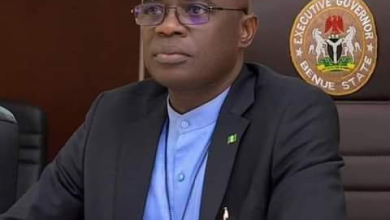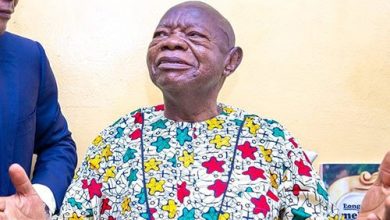Ex-EFCC Boss Bawa Exposes How Nigeria Lost $450M to Subsidy Fraud
Former EFCC chairman Abdulrasheed Bawa revealed that Nigeria lost over $450 million to subsidy fraud between 2006 and 2012.
The scam involved 59 oil companies, with fraudulent claims totaling ₦68 billion. About 80 percent of the funds were recovered.
Abdulrasheed Bawa, the former Chairman of the Economic and Financial Crimes Commission (EFCC), has revealed how Nigeria lost over $450 million through fraudulent activities in the petroleum subsidy scheme between 2006 and 2012.
In his new book titled The Shadow of Loot & Losses: Uncovering Nigeria’s Petroleum Subsidy Fraud, Bawa gives a detailed account of how the Petroleum Support Fund (PSF) was abused by oil marketers and other key players in the oil sector. The book draws heavily from his experience as one of the lead investigators on the EFCC’s special task force assigned to uncover corruption in the subsidy program.
Bawa, who led the EFCC from February 2021 until June 2023, explained that the fraud was carried out by 59 out of the 141 oil companies that were involved in the PSF scheme during that period. These companies, according to him, submitted fake documents and inflated their subsidy claims to receive money they were not entitled to.
“Our investigations revealed that, as admitted by the oil marketing companies involved, fraud related to petroleum subsidies exceeded 68 billion naira, which translates to over 450 million dollars in direct fraudulent activities,” Bawa wrote.
He noted that part of the scheme involved making false claims for fuel that was never delivered or exaggerating the volume of fuel imported. Some of the marketers even went as far as altering documents and dates on shipping papers to match periods with higher subsidy rates, thereby collecting more money than they should have.
The EFCC also uncovered fraud totaling 19.6 billion naira linked to trading companies. These claims were submitted under the names of sellers that the oil companies later claimed they did not know. Bawa described this as a clear attempt to manipulate the system and steal public funds.
In another case, oil marketers tried to commit fraud amounting to 9.4 billion naira. They forged documents to align shipment dates with subsidy calculation periods. Luckily, due to checks already in place within the subsidy rules, the fake dates were not accepted and the fraud attempt was blocked.
Bawa’s investigation also showed how the fraud grew year by year. There were no reported cases of wrongdoing in 2006 and 2007. However, in 2008, the team uncovered fraudulent claims worth 11.5 billion naira. In 2009, the figure dropped to 4.88 billion, but it rose again to 10.3 billion in 2010. The peak of the scandal came in 2011, when fake claims shot up to a record 41.7 billion naira.
In total, the EFCC discovered fraudulent activities amounting to 68 billion naira between 2006 and 2011. According to Bawa, about 80 percent of the stolen money has been recovered. He explained that the remaining amount is tied to cases still in court or linked to individuals who have died.
While the financial damage is already huge, Bawa pointed out that the true cost of the fraud goes far beyond just lost money. He said the funds lost to subsidy fraud could have been used to build schools, hospitals, roads, and other infrastructure that would benefit ordinary Nigerians.
“These direct losses in revenue, alongside many additional undisclosed amounts and indirect revenue losses, could have been used to finance essential public services, infrastructural development, and social welfare initiatives,” he wrote.
He added that the loss of public funds through fraud has widened Nigeria’s budget deficits and led to cuts in key sectors like healthcare, education, and welfare programs. According to Bawa, the government has spent more than 16.5 trillion naira on petrol subsidies since the return to democratic rule in 1999.
The release of Bawa’s book has triggered fresh discussions about corruption in the oil industry and the urgent need for reform. Many experts believe that his revelations should encourage lawmakers and government agencies to tighten controls around fuel subsidy payments and hold accountable those who misuse public funds.
As Nigeria continues to navigate economic challenges, including rising inflation and revenue shortfalls, Bawa’s findings remind the nation of the importance of transparency, accountability, and strong institutions. Without these, funds meant for national growth and citizen welfare risk ending up in the wrong hands once again.



